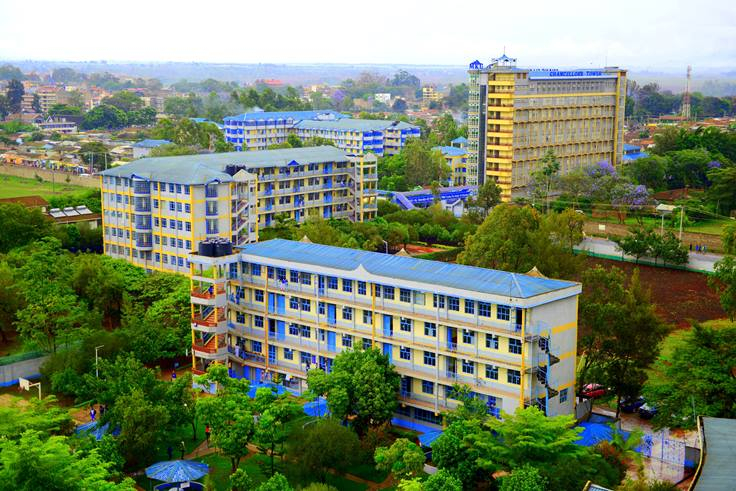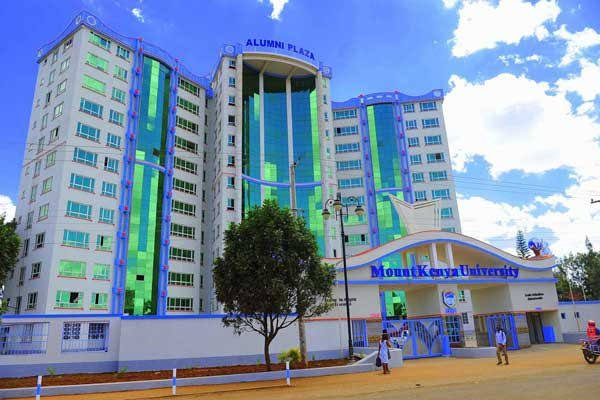Mount Kenya University

The main campus of Mount Kenya University is in Thika, with satellite campuses in Nairobi, Parklands, Mombasa, Nakuru, Eldoret, Nkubu, Meru, Kakamega, and Kisii. Malindi, Kisumu, Nyeri, and Kericho have study centers, while Garissa, Isiolo, and Kitale have marketing offices.
The University has three institutes namely: Institute of Security, Equip Africa Institute, Justice and Ethics and Institute of Films, Performing and Creative Arts, one College and 13 schools namely: Medical School; Public Health; Nursing; Pharmacy; Clinical Medicine; Law; Applied Sciences and Pure; Engineering Energy and Built Environment; Computing and Informatics; Hospitality, Education; Travel and Tourism Management; Social Sciences and School of Business and Economics.
MKU programs are accredited by the following professional bodies in addition to the Commission for University Education: Pharmacy and Poisons Board (PPB); Kenya Nutritionists & Dieticians Institute (KNDI); Clinical Officers Council (COC); Kenya Medical Practitioners and Dentist Board (KMPDB); Public Health Officers and Technicians Council (PHOTC); Nursing Council of Kenya (NCK); Commission for Legal Education (CLE); and Kenya Medical Laboratory Technologist and Tecnologist (KMLTTB).
Mount Kenya University has a Management Board (MB), which is in charge of implementing university policy and overseeing the day-to-day operations of the university. In accordance with the University Charter, the MKU Senate is in responsibility of all academic concerns. The University is accredited to ISO 9001:2015 and is a member of the Inter-University Council for East Africa, the African Association of Universities, and the Association of Commonwealth Universities.
MKU has successfully formed partnerships with like-minded higher education institutions all around the world. On a local, regional, and international level, the University now has approximately 50 collaborations and links.
Location: Thika, Kenya











